Thailand Travel Requirements: From TDAC to Visa Information
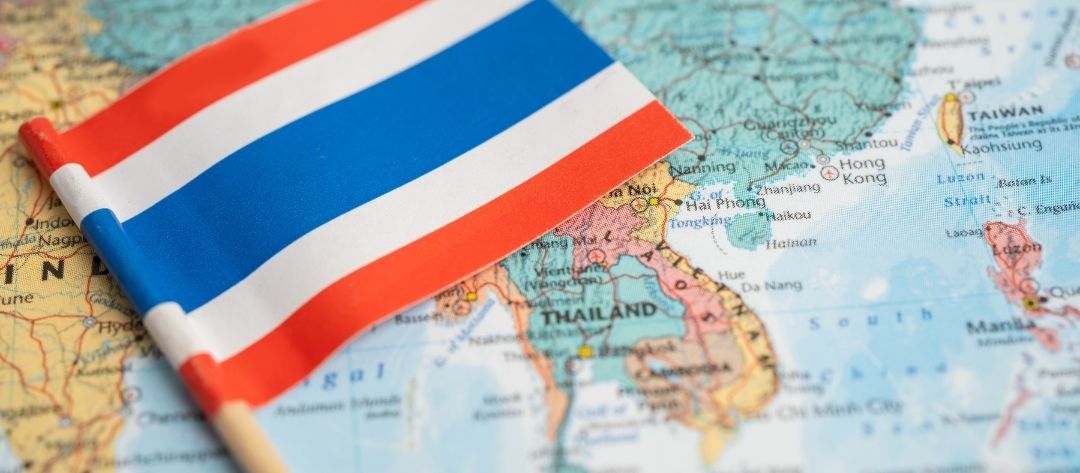
When planning your trip to Thailand, knowing the Thailand travel requirements is crucial for a smooth and enjoyable experience. From the Thailand Digital Arrival Card (TDAC) to understanding visa types, these essential regulations ensure you’re prepared for every step. Travelers must comply with passport validity, health documentation, and customs protocols. By adhering to these guidelines, you can confidently embark on your adventure, avoiding unnecessary complications.
Ready to explore this beautiful destination? Read on to discover everything you need to know about Thailand’s entry rules and ensure your journey is seamless.
Thailand Digital Arrival Card (TDAC): Your First Step
Starting May 1, 2025, Thailand has officially replaced the old TM6 paper form with the Thailand Digital Arrival Card (TDAC). All foreign nationals must complete this online arrival card before entering Thailand. Here’s a detailed guide to help you understand and prepare for this new requirement.
- What is the Thailand Digital Arrival Card (TDAC)?
The TDAC, short for Thailand Digital Arrival Card, is an electronic entry form that collects essential traveler information. Previously, visitors had to fill out the TM6 paper form upon arrival. With the new system, all information is now submitted and stored digitally, helping immigration officers process arrivals more efficiently.
- Who Needs to Complete the TDAC?
The TDAC applies to all foreign nationals entering Thailand, no matter what type of visa they hold. It is required for every method of entry, whether you arrive by air, land, or sea. Even travelers who are eligible for visa-free entry, such as those from the Visa Exemption Scheme (including American, European, or ASEAN passport holders), must still submit the form before traveling.
This means that regardless of your travel status—tourist, business visitor, or transit passenger—the TDAC is a step you cannot skip.
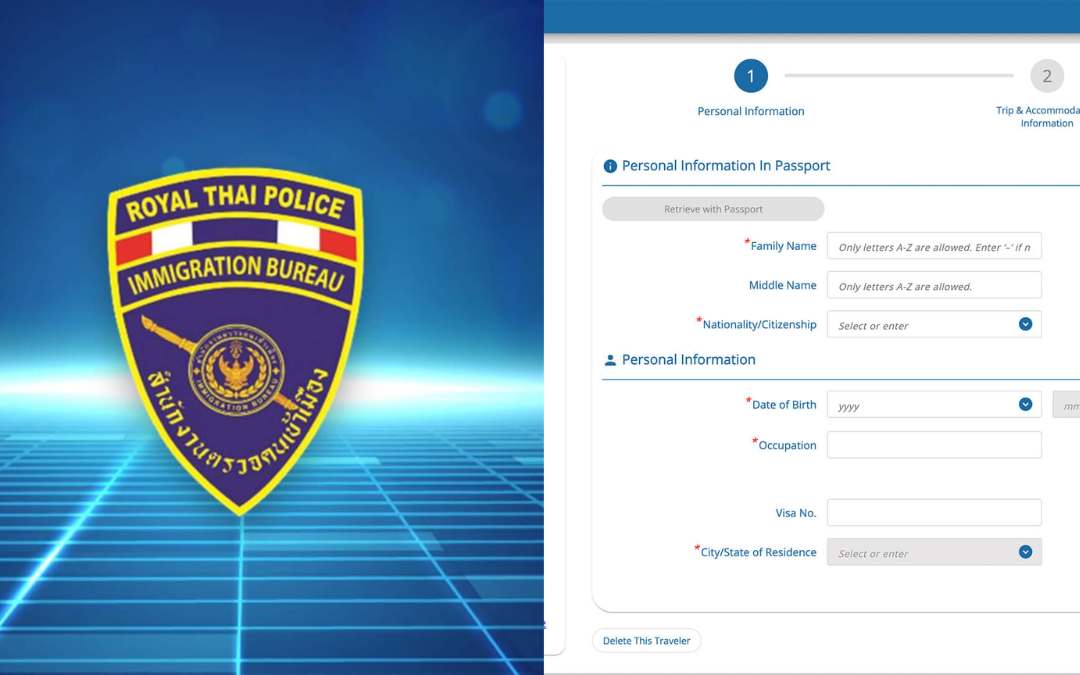
Royal Thai Police Immigration Bureau emblem on a digital registration page.
- When Should You Submit the TDAC?
Travelers are advised to complete the TDAC up to 3 days (72 hours) before arriving in Thailand. Leaving it until the last minute is risky, as missing the registration could lead to long queues, questions at immigration, or in the worst cases, refusal of entry.
- Where to Register for the TDAC
The TDAC must be completed online through the official government website: https://tdac.immigration.go.th/arrival-card/#/home.
When registering, you’ll need to provide:
- Full name and passport details
- Flight number or travel method information
- Accommodation address in Thailand
Travelers should be cautious of unofficial websites or third-party services that might charge unnecessary fees or even misuse personal data. Always use the official immigration portal.
- Why the TDAC Matters
The Thailand Digital Arrival Card is more than just a formality. It was introduced to enhance border control and streamline the immigration process. With all information stored digitally, immigration officers can process arrivals more quickly, reducing waiting times and improving security.
Completing the TDAC in advance helps travelers enjoy a smoother entry experience. Those who fail to register may face delays at the border or risk being denied entry altogether. For anyone planning a trip to Thailand, this step is now as essential as booking flights or hotels.
>> Read More: Thailand Digital Arrival Card (TDAC) Updates
Understanding Visa & Entry Options: A Key Part of Thailand Travel Requirements
Thailand offers a range of entry pathways depending on your nationality, length of stay, and purpose of travel. Whether you are visiting as a tourist, business traveler, digital nomad, or long-term resident, understanding the latest visa rules is essential—especially since the Thailand Digital Arrival Card (TDAC) became a mandatory pre-arrival requirement.
Visa Exemption Scheme
One of the most widely used options for short-term visitors is the Visa Exemption Scheme, which permits travelers from select countries to enter Thailand without requiring a visa in advance. As of July 15, 2024, nationals from 93 countries and territories are eligible to participate in this program.
The exemption permits a stay of up to 60 days, with the possibility of extending the visit for another 30 days at a Thai immigration office. This extension, however, is at the discretion of the immigration officer. The Thai government has already signaled plans to reduce the initial visa-free stay from 60 days to 30 days in 2025, so travelers should check for updates before arrival.
The scheme applies to countries including the United States and the United Kingdom. American passport holders can stay visa-free for up to 60 days, while British citizens receive a complimentary 60-day visa-exempt stamp upon arrival. UK travelers can even re-enter Thailand under the scheme after a short trip to neighboring countries such as Cambodia or Vietnam.
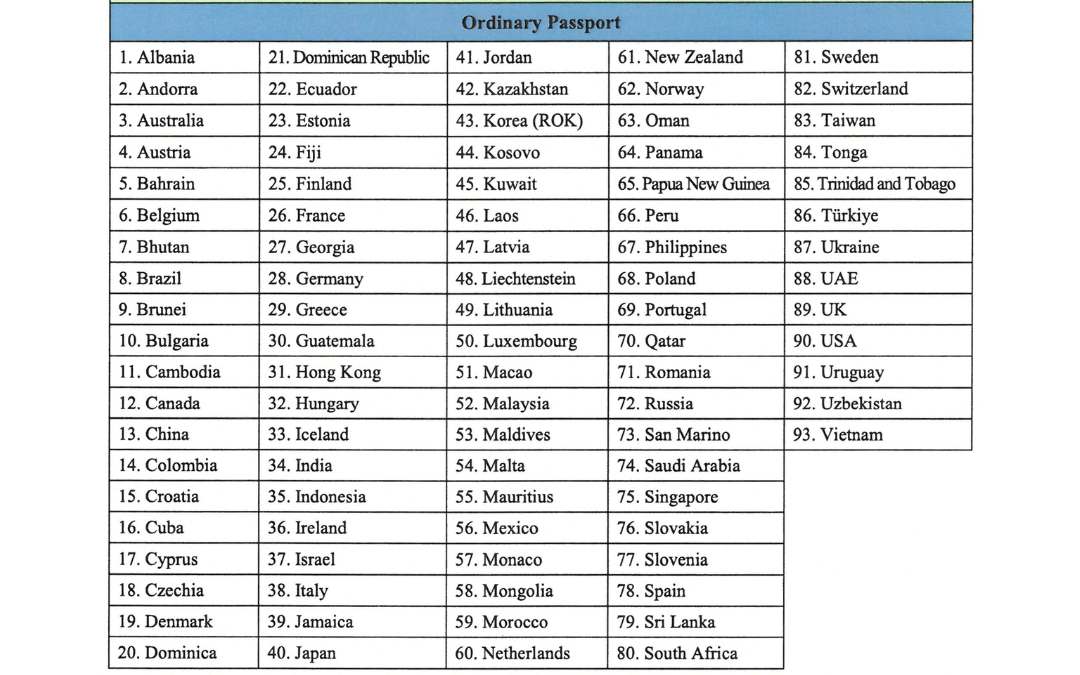
List of countries with passport eligibility for visa exemptions.
Visa on Arrival (VOA)
For those who are not eligible for the exemption, Thailand provides the Visa on Arrival program. Nationals from 31 countries and territories can apply for this option, which is available at designated immigration checkpoints, including airports and land borders.
The VOA grants a stay of up to 15 days for tourism purposes. It is most suitable for travelers planning short visits. The updated VOA rules came into effect on July 15, 2024, and remain an important entry option for eligible nationalities.
Tourist Visas
Travelers who require more time than the VOA allows, or who are not eligible for the exemption program, can apply for a Tourist Visa. This visa provides an initial stay of 60 days, which can be extended for an extra 30 days at a local immigration office.
Two main types of tourist visas are available. The Single-Entry Tourist Visa is the most common and allows one entry into Thailand. If you leave the country before the visa expires, it is canceled unless you have secured a re-entry permit. The Multiple-Entry Tourist Visa, valid for six months, allows repeated entries into Thailand, with each stay lasting 60 days and extendable. However, this option is less common and more difficult to qualify for than the single-entry visa.
Long-Stay Options
Thailand also caters to long-term visitors with visa options designed for remote workers, retirees, and frequent travelers.
The Destination Thailand Visa (DTV) is a flexible choice for digital nomads, freelancers, and those engaged in cultural activities. It is valid for five years and offers multiple entries. Each entry permits a stay of 180 days, which can be extended for another 180 days, making it one of the most practical and affordable long-stay visas available.
For those seeking luxury and exclusivity, the Thailand Privilege Visa offers membership tiers lasting from five to twenty years. This multiple-entry visa not only removes the hassle of repeated applications but also provides a range of VIP services. Members enjoy fast-track immigration, access to premium airport lounges, discounts at leading restaurants and shops, and even a points-based system that can be redeemed for perks like spa treatments, hotel stays, or private boat rentals.
If you’re planning a long-term stay in Thailand, Asia Pioneer Travel is here to provide expert guidance on everything from obtaining the right visa to crafting a personalized itinerary tailored to your needs. Whether you’re a digital nomad, a retiree, or someone seeking a more luxurious travel experience, we can help ensure that your stay is smooth, comfortable, and unforgettable.
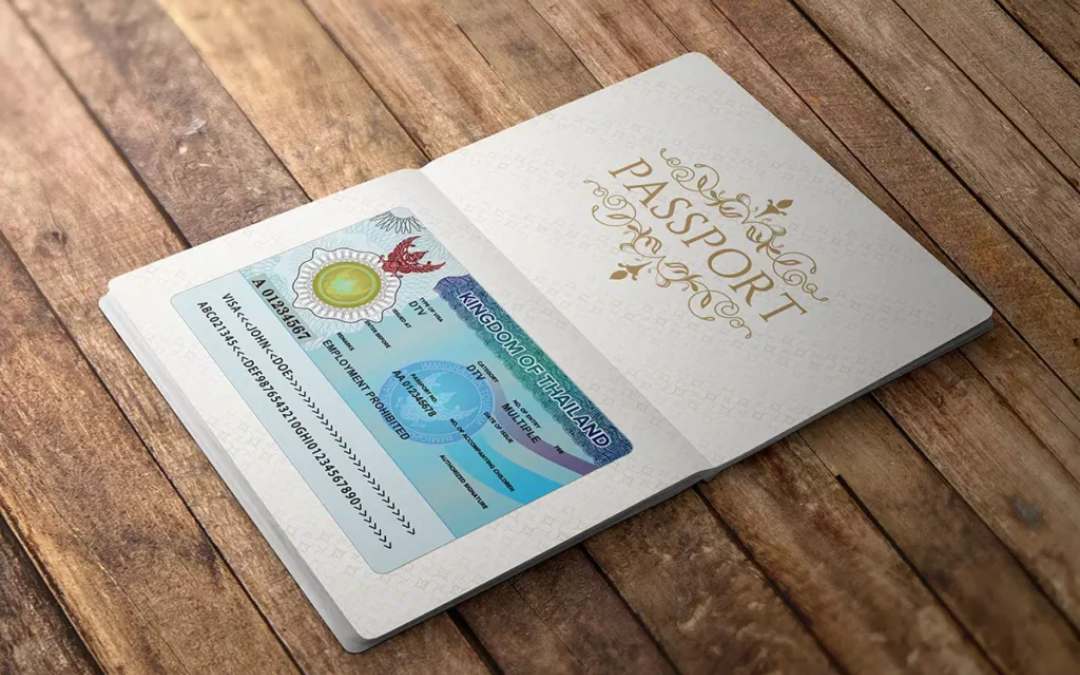
Close-up of a Thai visa page in a passport.
>> You might love this tour: Best of Thailand Tour Package
Passport, Health, and Customs Requirements for Thailand Travel
When planning your trip to Thailand, it’s essential to prepare not only for visas and the Thailand Digital Arrival Card (TDAC), but also to comply with the country’s passport, health, and customs regulations. These requirements are strictly enforced at immigration checkpoints, and failure to comply could result in delays or even denial of entry.
Passport Validity and Blank Pages
Your passport must meet specific requirements before you can enter Thailand. It needs to be valid for at least 6 months from the date of your arrival. Travelers are strongly advised to check their passports’ expiry dates well in advance, as those with less validity may be refused entry at the border.
In addition, your passport must have at least one blank page available for each entry stamp. Endorsement pages do not count toward this requirement.
Health and Vaccination Requirements
Thailand has removed general vaccination requirements for international travelers, including the COVID-19 vaccine. However, specific rules apply if you are arriving from countries at risk of yellow fever transmission. In this case, you must present a valid yellow fever vaccination certificate upon entry.
High-risk countries include nations in Africa such as Angola, Ghana, Nigeria, and Sudan, as well as parts of South America, including Brazil, Colombia, Peru, and Venezuela. Travelers without the required certificate may be refused entry or quarantined.
Regarding personal medication, travelers may bring up to a 30-day supply for personal use. All medication should be carried in its original packaging along with a doctor’s prescription. Certain medications that are legal in the U.S. or Europe may be prohibited under Thai law, so it is essential to check with the Thai Customs Department and the Thai FDA before traveling.
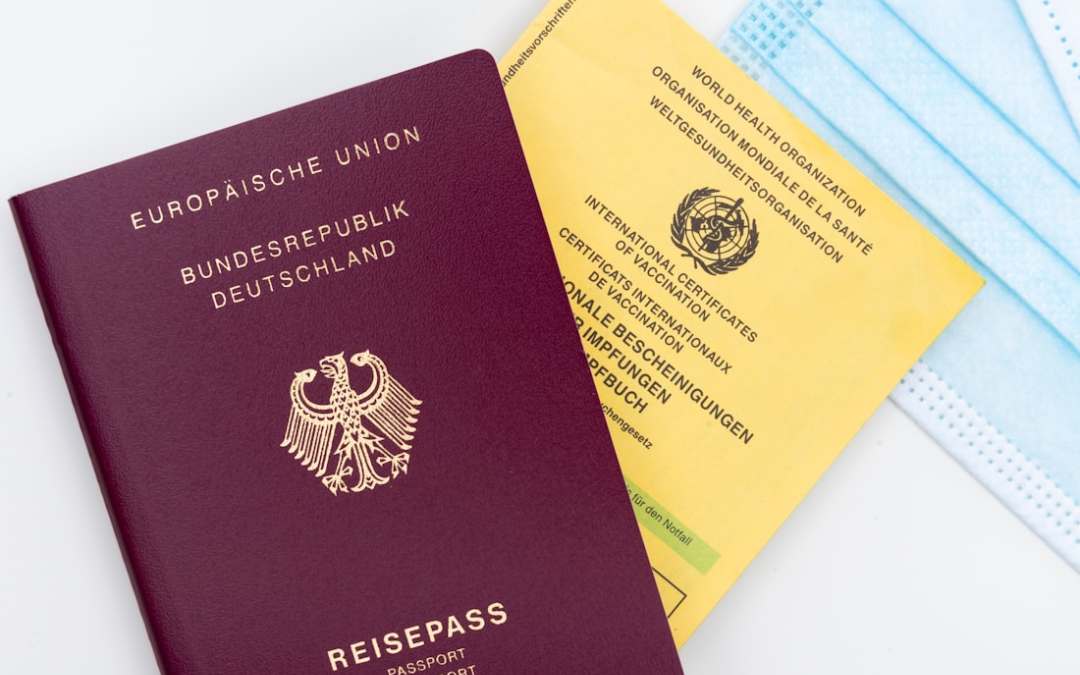
German passport alongside an international vaccination certificate.
Customs Rules and Restrictions
Thailand enforces strict customs laws. Any goods that are prohibited, restricted, or subject to duty must be declared upon arrival.
The most critical restrictions include:
- Illegal drugs: Thailand enforces extremely harsh penalties for drug-related offenses, ranging from long prison terms under severe conditions to the death penalty for trafficking.
- Cigarettes and tobacco: Travelers are not allowed to bring more than 200 cigarettes per person. Exceeding this limit can result in a fine of up to 10 times the value of the cigarettes, in addition to confiscation.
- Restricted items: Even non-lethal military equipment, such as bulletproof vests and night vision goggles, is prohibited for personal import. While vaping devices are not specifically addressed in the sources, travelers should assume restrictions may apply.
- Counterfeit goods: Carrying counterfeit or pirated items may cause problems when re-entering countries such as the United States, where they can be confiscated or fined.
Travel Insurance
While not a legal requirement, travel insurance is strongly recommended for anyone visiting Thailand. Policies should include coverage for medical treatment, trip cancellation, and especially medical evacuation.
Mandatory Digital Arrival Card
Finally, all travelers should remember that starting May 1, 2025, the Thailand Digital Arrival Card (TDAC) is mandatory. This online form must be completed up to three days before arrival, regardless of visa type or method of entry.
Failure to register may cause delays at immigration or even result in being denied entry into the country. Completing the TDAC in advance, along with meeting passport, health, and customs requirements, ensures a smooth and stress-free entry into Thailand.
>> Read More: Travel Visa in Asia
Financial Proof Requirements for Thailand Visa Applications (Reinstated May 2025)
As of May 2025, Thailand has reinstated the financial proof requirement for travelers applying for a tourist visa. This measure had been temporarily suspended in November 2023 to simplify travel procedures and encourage post-pandemic tourism. With the suspension ended, financial proof once again forms part of the standard visa application process.
When applying for a Thai visa, travelers must present evidence that they have sufficient funds available. This typically includes recent bank statements, proof of income, or other relevant financial documents. Immigration officials may request to see these documents during the application process, and in some cases, upon arrival at checkpoints.
How Much Proof is Required?
While the exact amount can vary depending on the visa type, general guidance suggests that:
- A single traveler should show a balance of at least 20,000 THB (approximately USD 550).
- Families or groups may need to present a combined balance of around 40,000 THB (about USD 1,100).
These figures serve as benchmarks for Thai immigration to verify that visitors can afford accommodation, food, transportation, and other expenses during their stay.
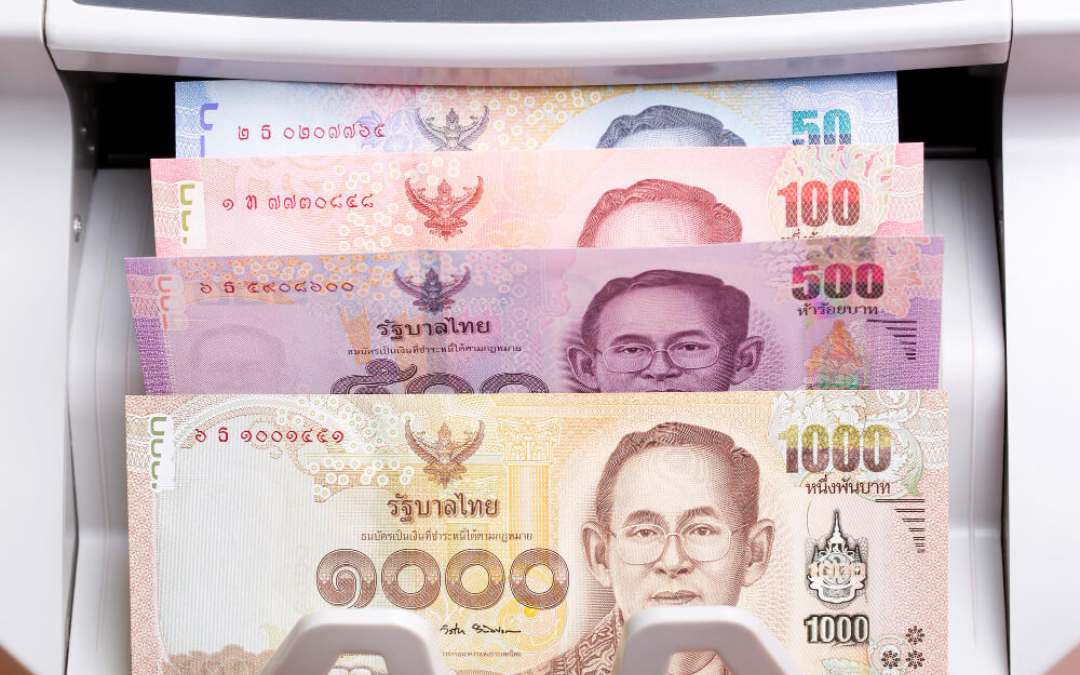
Provide proof of 20,000 THB (individual) or 40,000 THB (family) for a Thai visa.
Why Was the Rule Reinstated?
Thailand decided to reinstate financial proof requirements to maintain stricter control over its immigration process and protect its tourism industry. Authorities want to ensure that all visitors can sustain themselves without becoming a financial burden on the state or overstaying illegally.
The rule also reflects the country’s commitment to responsible tourism management. By requiring proof of funds, Thailand aims to welcome genuine tourists while preventing misuse of visa categories for unauthorized work or long-term stays.
Overstays and Penalties: Don’t Risk It
Thailand is strict about immigration rules, and overstaying your permitted period is a serious offense. Travelers who stay beyond their authorized visa or entry duration face heavy fines, detention, deportation, and even long-term bans. Understanding these consequences is essential for anyone planning to visit the country.
Overstay Consequences
If you overstay in Thailand, you will be fined 500 Thai baht for each day you remain beyond your permitted stay. The maximum fine is capped at 20,000 baht, but the penalties don’t stop there. Overstaying for an extended period can lead to detention, arrest, and deportation at your own expense. Additionally, travelers may face a re-entry ban of up to 10 years, rendering future visits to Thailand impossible during that period.
For foreigners detained due to overstaying, the experience can be extremely difficult. Immigration detention centers (IDCs) are often overcrowded, with limited space and inadequate facilities. Health care is fundamental, and conditions are frequently described as harsh and unhealthy.
Processing deportation cases can take up to two weeks, during which detainees must remain in these challenging environments. Deportation itself is at the traveler’s expense, adding further financial burden to the already severe consequences.
Advice: Extend Legally, Don’t Overstay
The best way to avoid these risks is simple: never overstay your visa. If you wish to remain in Thailand longer, apply for a legal extension. For example, a 60-day visa exemption can usually be extended for an additional 30 days, though approval is at the discretion of the immigration officer.
Travelers should also be cautious of illegal practices. Avoid so-called “visa brokers” who offer to take your passport for visa runs or promise extensions outside of Thai law. Such shortcuts not only risk your legal status but can also lead to scams or even identity theft.
It is also strongly recommended that you always carry a copy of your passport and visa (digital or physical) while in Thailand. This helps prove your legal status and avoid unnecessary detention during random checks by immigration police.
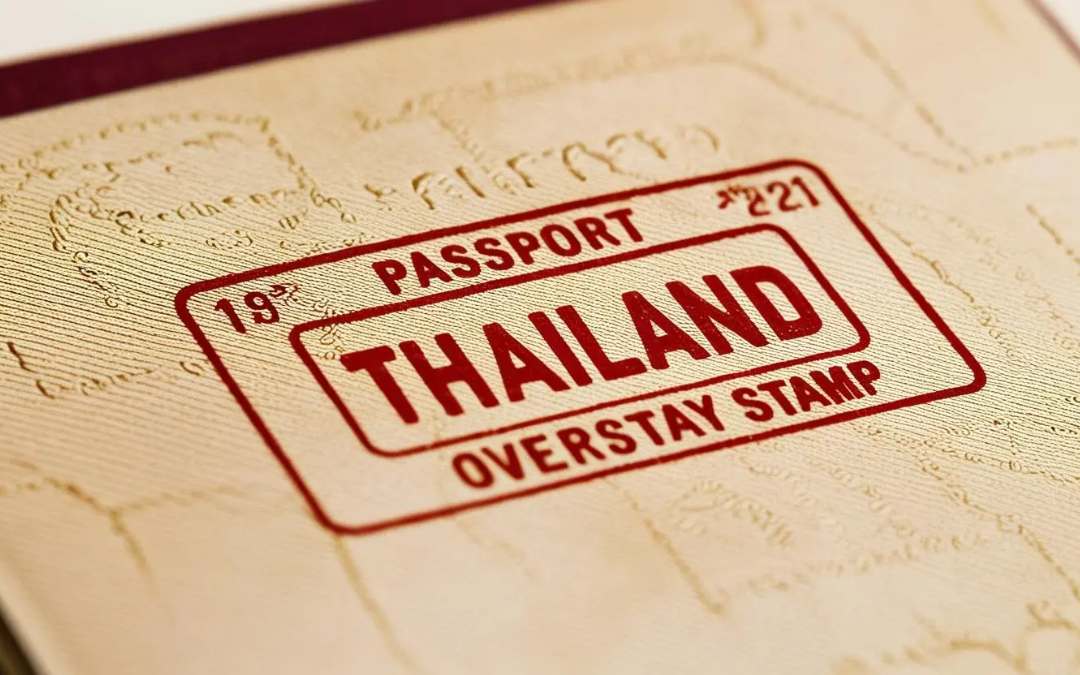
Avoid the consequences of overstaying by ensuring you extend your stay legally in Thailand.
Final Tips for a Hassle-Free Thailand Travel Experience
- Complete TDAC on Time: Register for the Thailand Digital Arrival Card (TDAC) online within 3 days before arrival to avoid delays or refusal of entry.
- Check visa eligibility by nationality: Confirm if your nationality qualifies for visa exemption or if you need a Tourist Visa, VOA, or long-stay option. Always verify with the nearest Thai Embassy or official website.
- Prepare financial and health documents: Be ready to show proof of funds (minimum 20,000 baht) and carry a yellow fever vaccination certificate if arriving from a high-risk country.
- Keep passport and Visa copies: Always carry a digital or printed copy of your passport ID page and visa. Make two sets of copies for emergencies.
- Understand Thai laws: Avoid breaking local laws, including strict lèse majesté rules, harsh penalties for illegal drugs, and strict defamation laws that apply even to online reviews.
- Know restricted areas: Avoid border areas with Cambodia (within 50 km) and the southern provinces of Yala, Pattani, and Narathiwat due to unrest and security risks.
- Beware of common scams: Do not hand over your passport as collateral for rentals, agree on taxi or tuk-tuk fares in advance, and avoid fake visa brokers offering illegal extensions.
- Follow customs restrictions: Do not exceed the 200-cigarette limit, avoid carrying restricted military items, and never attempt to bring in illegal drugs. Counterfeit goods may also cause issues when leaving or entering another country.
- Plan for medical needs: Carry prescribed medication in its original packaging with a doctor’s note, have cash ready for medical services, and remember that emergency medical services can be reached by dialing 1669.
- Stay healthy during your trip: Drink bottled water, be cautious with ice, and prepare for seasonal air pollution in Bangkok and northern Thailand. Sensitive travelers should monitor air quality and limit outdoor activities during peak smog months.
- Use professional help if needed: For complex stays or visa questions, consider professional visa consultants or travel designers to handle paperwork and reduce the risk of entry problems.
In conclusion, understanding the Thailand travel requirements is vital to ensure a hassle-free and enjoyable trip. From completing the TDAC to securing the correct visa, every detail plays a significant role in a smooth entry into the country. By following these guidelines, you can avoid delays and fully immerse yourself in the beauty and culture of Thailand. Prepare ahead and make your journey as seamless as possible.





